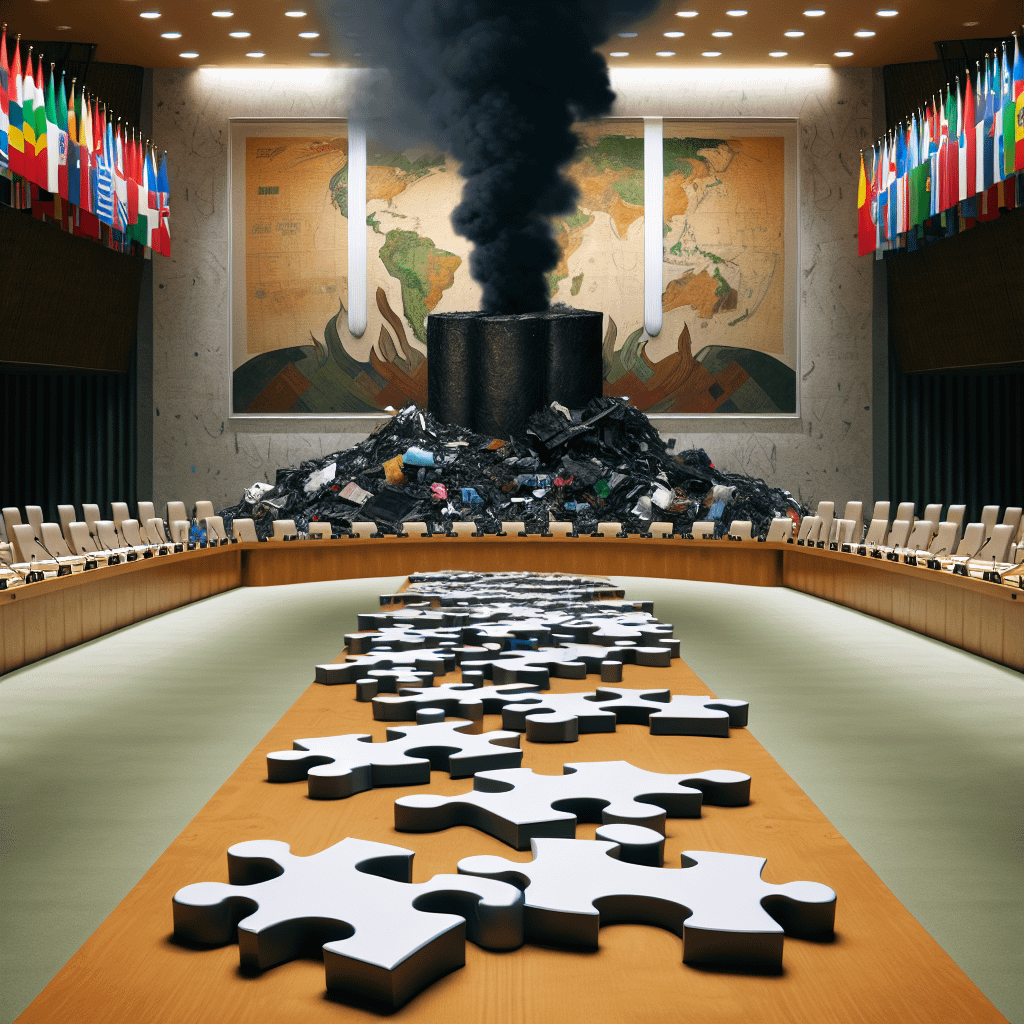The Busan talks which ended in the early hours of Monday were meant to be the final step in agreeing a UN treaty to end plastic pollution. But rumours started swirling on Sunday afternoon – later confirmed – that they wouldn’t be the last.Fighting back the exhaustion from one too many sleepless nights, diplomats and observers wondered why the talks had broken down – and what could prevent the same happening again when countries reconvene next year to try and push a pact over the finish line?
One clear, prevailing narrative was borrowed straight from UN climate change negotiations: a vocal minority of defiant, well-coordinated petrostates had killed off the majority’s efforts to clinch an ambitious agreement to end plastic pollution.
More than 100 countries – from rich Western states to African, Latin American and Pacific nations – got behind a drive to include provisions to cap plastic manufacturing in the new UN accord, rather than limiting it to a narrower focus on recycling.
Anything short of that would be a failure and a betrayal, they repeated in unison throughout the week-long deliberations. “The time for the freedom to pollute is over,” said European Union envoy Tony Agotha on Friday. “Mopping the floor when the tap is open is useless.”
“Economic interests”
Only around 9% of plastic is recycled worldwide, according to the Organisation for Economic Co-operation and Development. It wrote in an October report that only through “stringent policies to curb production and demand”, combined with better waste management, could the world “nearly end plastic leakage to the environment by 2040”.
Nearly all plastic is made using plant-heating fossil fuels and, as production is projected to double or triple in the next 25 years, that spells trouble for efforts to limit global warming and stem the flood of plastic waste clogging up the Earth’s oceans and littering its land.
But a group of self-defined “Like-Minded” countries led by Saudi Arabia, Russia and Iran – which also includes most Arab states and quietly counts on support from India – don’t want to close the door on a key economic sector. In Busan, they pushed back strongly against any attempt to include provisions to cap plastic manufacturing in a legally binding UN pact.
Talks to produce global plastics pact end without agreement
They reiterated their view that production curbs fall outside the scope of the treaty, saying they could cause “economic disruption”, trade restrictions and shortages of essential materials.
In response, Ghana’s lead negotiator Sam Adu-Kumi told reporters on Sunday it seems that “people are looking at their economic interests without looking at the common enemy” of plastic pollution and “its devastating effects”.
Fossil fuel-producing nations and companies see the petrochemicals industry, including plastics, as a lifeline because demand for oil and gas in the energy sector is projected to decline as the worl

